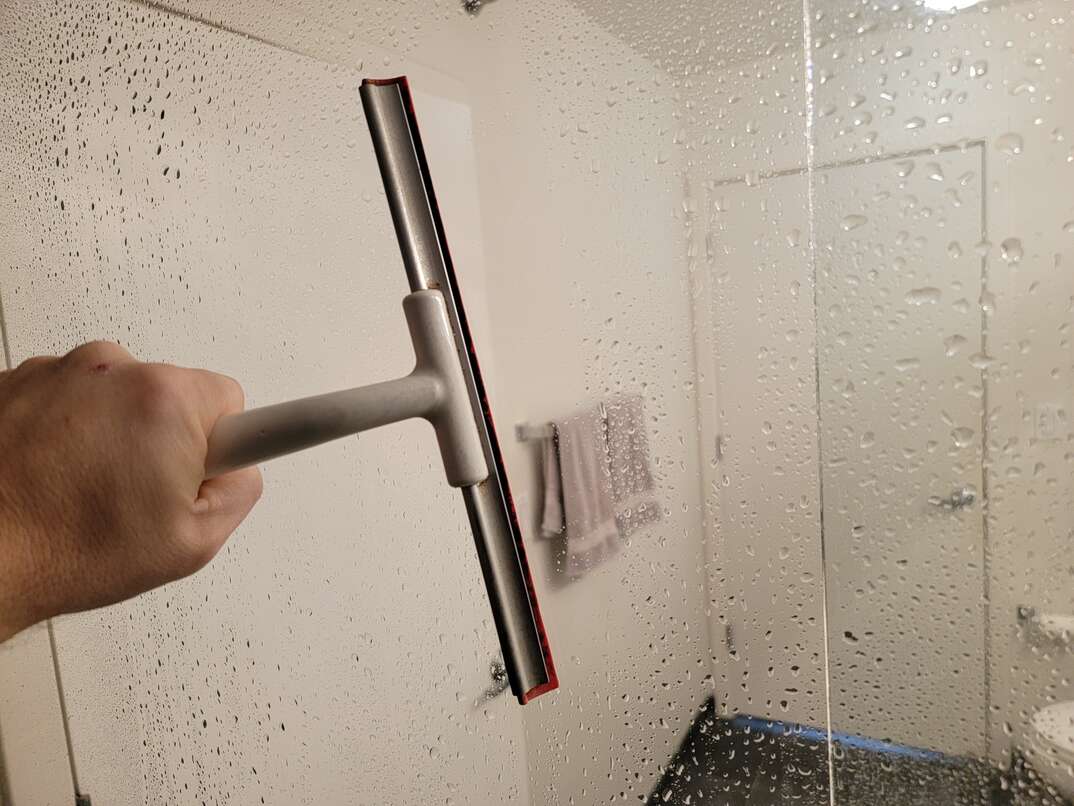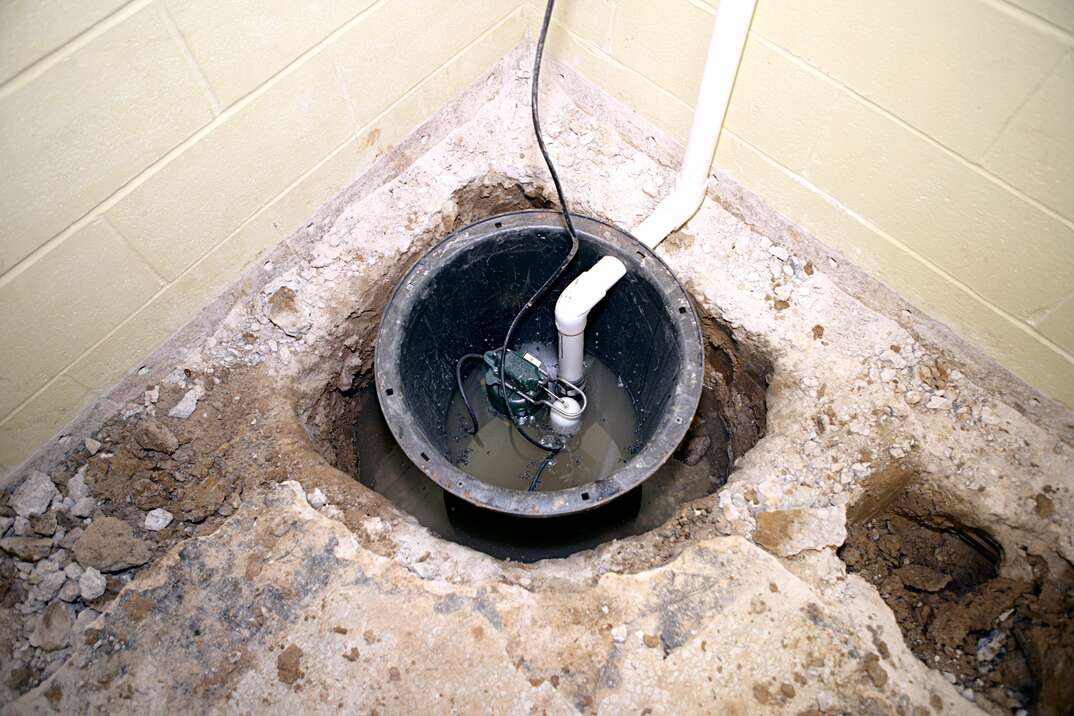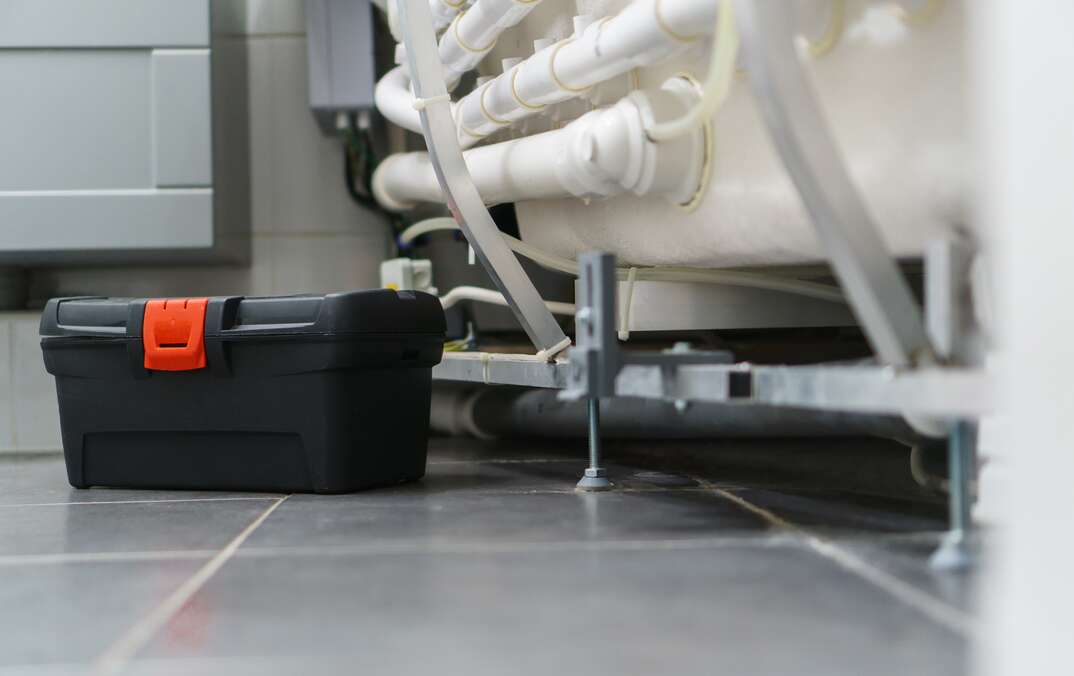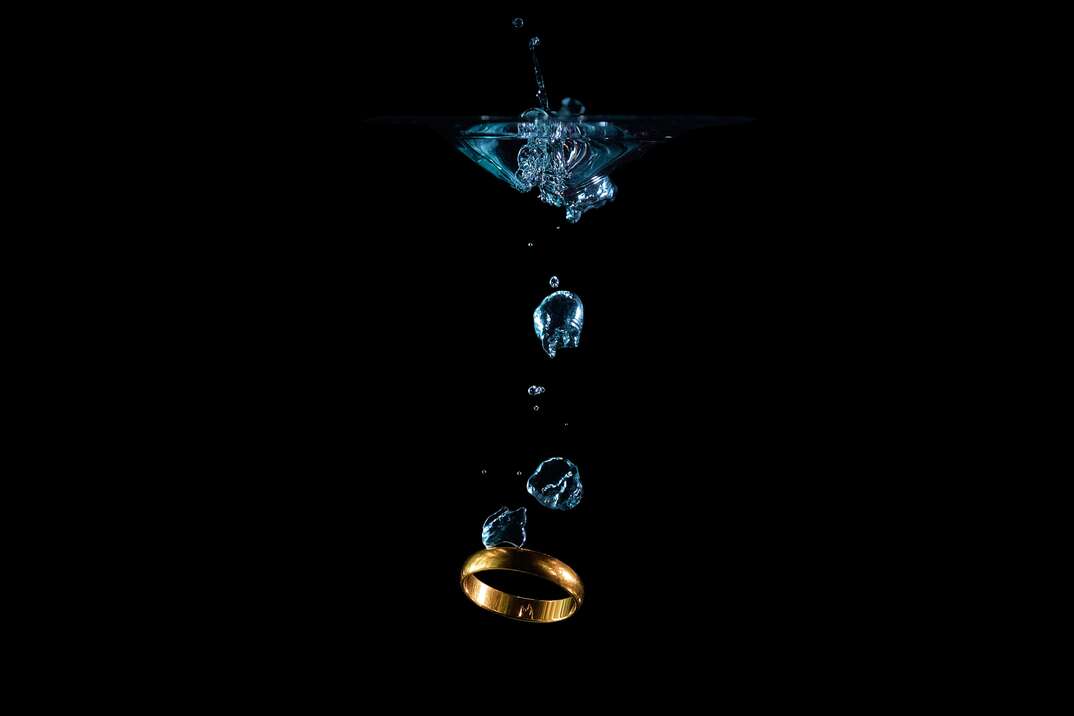How to Get Soap Scum Off Your Shower Doors

Glass shower doors give your bathroom a bright, airy feeling, but soap scum can quickly cloud over those doors and make them look filthy.
This May Also Interest You: Improve Low Water Pressure in the Shower
You can't avoid soap scum completely in most cases, but you can use safe cleaning methods to remove the gunk without damaging your glass shower doors.
How Do You Clean Soap Scum Off Shower Doors?
Cleaning soap scum from shower doors takes patience and elbow grease — there's really no shortcut. You have a few options for cleaners that work well on soap scum. Many of them are items you likely have around your home. Use these steps to clean shower glass and remove soap scum.
Step 1: Choose Your Cleaner
A safe, gentle and effective soap scum cleaner is undiluted vinegar. It's often effective on its own, but you can add other cleaning ingredients to make it more powerful. A few drops of dish soap add extra cleaning power.
You can also make a cleaning paste of vinegar and baking soda. Add about two parts baking soda and one part vinegar to create a runny paste. The mixture will bubble at first, but the bubbles will die down quickly. Commercial glass cleaner can be effective, but it can have harsh ingredients in it.
Step 2: Apply the Cleaner
Once you choose your cleaner, apply it all over the shower door. If you're using undiluted vinegar, placing it in a spray bottle and spraying it over all surfaces is the easiest method. If you make a paste, you can use a cloth to wipe the paste over the door. Let it sit for at least 15 minutes to help soften the soap scum. If the soap scum is really thick, you might need to reapply the cleaner and wait longer.
Step 3: Scrub Away the Soap Scum
Grab a microfiber cloth and wipe the glass surfaces from top to bottom. This might require some elbow grease to help remove all the soap scum. You can also use a soft-bristled brush to tackle the soap scum, but avoid anything that could scratch the glass. Dip the cloth or brush in more vinegar if necessary to tackle tough spots.
Step 4: Rinse the Door
Use a clean, wet cloth or your shower spray to rinse the cleaner and remaining soap scum remnants off the shower door. Inspect all areas for any soap scum you may have missed, and clean those areas again as needed. You can let the door air dry or wipe it with a lint-free towel to avoid spots.
Step 5: Clean the Shower Track
Once the door is clean, you can tackle the shower track, if your shower has one. Spray the cleaner into the track in all areas. Let it sit for 15 minutes. Use a toothbrush or another small brush to scrub the small areas of the track. Rinse the track well.
More Related Articles:
- Showerhead Sickness: You’re Going to Want to Deep-Clean Your Showerhead After This
- 8 Shower Storage Solutions
- How to Clean Your Shower Tiles
- 5 Reasons You Have Slow Hot Water Flow — and 5 Fixes You Can Try
- Here’s How to Hack Your Low-Flow Showerhead … But Should You?
How Do You Prevent Soap Scum Buildup in the Future?
Soap scum forms when soap residue mixes with the minerals in hard water, oil, dirt and other gunk. The resulting white film makes your shower glass look cloudy. It can be difficult to avoid soap scum completely, but there are some things that can help. Try these tips:
- Use body wash. It doesn't typically cause soap scum the way bar soap does.
- Squeegee the door after showering. Do a quick wipe-down of the shower door with a squeegee or towel after every shower to prevent soap scum buildup.
- Apply cleaning spray. Make a daily cleaning spray by mixing equal parts vinegar and water with a few drops of dish soap in a spray bottle. Spray it on the shower door after you shower, wait a few minutes, and rinse it off. This can remove soap scum before it builds up.
- Install a water softener. Soap scum happens when you have hard water, so installing a water softener could reduce or eliminate soap scum.
What Should You Avoid When You Clean Shower Glass?
Avoid anything that could scratch the glass, such as wire-bristled brushes. You should also avoid mixing different types of cleaners together, especially if you use bleach or a commercial bathroom cleaner containing bleach. Combining bleach with other things, including vinegar, can create dangerous gases.


